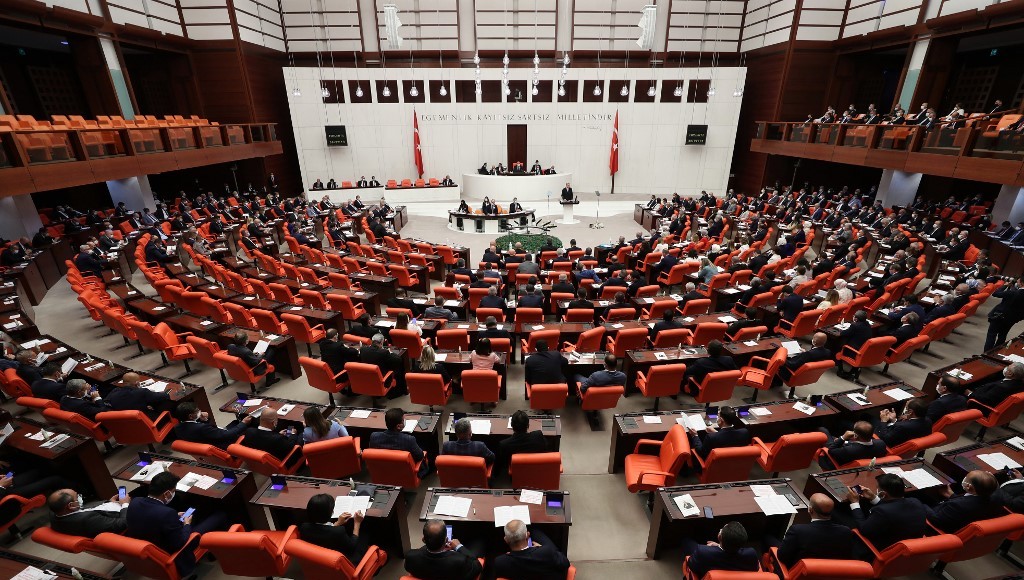Turkey’s main opposition party has filed a petition with the Constitutional Court seeking to annul a parliamentary vote that appointed five new members to the country’s top judicial body, citing procedural violations and concerns over judicial independence, the DHA news agency reported.
The Republican People’s Party (CHP) submitted its petition Wednesday morning, less than 10 hours after lawmakers in the Turkish Parliament voted to fill upcoming vacancies on the Council of Judges and Prosecutors (HSK), a powerful body responsible for judicial appointments, promotions and disciplinary matters.
CHP lawmakers walked out of the voting session, claiming the election process violated parliamentary procedure. In its filing the party argued that the selection process failed to comply with legal requirements meant to ensure impartiality, including the need for a qualified majority and a method of drawing lots to break ties between candidates.
“In the name of the CHP parliamentary group, we have submitted our annulment request to the Constitutional Court,” CHP group deputy chair Gökhan Günaydın told reporters.
Dün gece 00:32’de kapanan Meclis oturumunda, eylemli İçtüzük ihlali ile HSK’ya 5 üye seçilmiştir.
10 saat sonra, sabah 10:30’da, CHP Grubu adına, milletvekillerimizle birlikte, AYM’ye iptal dilekçemizi sunduk, basın açıklamamızda seçim skandallarını örneklerle anlattık.pic.twitter.com/nmKS9pJPWu
— Gökhan Günaydın (@gunaydingokhan) May 21, 2025
The newly elected HSK members are Fuzuli Aydoğdu, Hakan Yüksel, Seyfi Han, Cengiz Aydemir and Alişan Tiryaki.
Günaydın also referred to a recent report from the Venice Commission, the Council of Europe’s advisory body on constitutional matters, which voiced concerns over the structure and operation of the HSK. In a December 2024 opinion, the commission warned that the extensive appointment powers held by the president and parliament give the executive branch overwhelming influence over the council, undermining the principle of separation of powers.
Under Turkey’s presidential system, the president serves as both head of state and head of government, with active involvement in party politics.
According to the Venice Commission, six of the HSK’s 13 members are directly appointed by the president, while most of the others are selected by parliament, where the ruling party holds a majority. None are elected by their peers in the judiciary, contrary to international standards that recommend at least half be chosen through peer elections to safeguard judicial independence.
The commission also called for the removal of the justice minister and the ministry undersecretary from the board, citing concerns over political interference and inadequate protections for HSK members against dismissal or reprisal.
Turkish President Recep Tayyip Erdoğan has had a tense relationship with the judiciary, especially after a 2013 corruption probe targeting senior members of his government. Erdoğan accused the prosecutors, judges and police involved in the investigation of acting on behalf of the Gülen movement, a faith-based group critical of his government.
Until 2016, Erdoğan sought to reshape the judiciary by appointing loyalists to key positions. Following a coup attempt in July 2016, the government launched an extensive crackdown, largely targeting the president’s opponents.
More than 4,000 judges and prosecutors were disbarred in the aftermath of the coup attempt over alleged ties to the Gülen movement, which the government accuses of orchestrating the abortive putsch. The movement denies any involvement.
The mass purge is widely believed to have created a chilling effect across Turkey’s judiciary, pressuring remaining members to align with government priorities and to pursue politically motivated investigations and prosecutions.
Turkey was ranked 117th out of 142 countries in the World Justice Project’s Rule of Law Index published in October, maintaining its position from the previous year.

